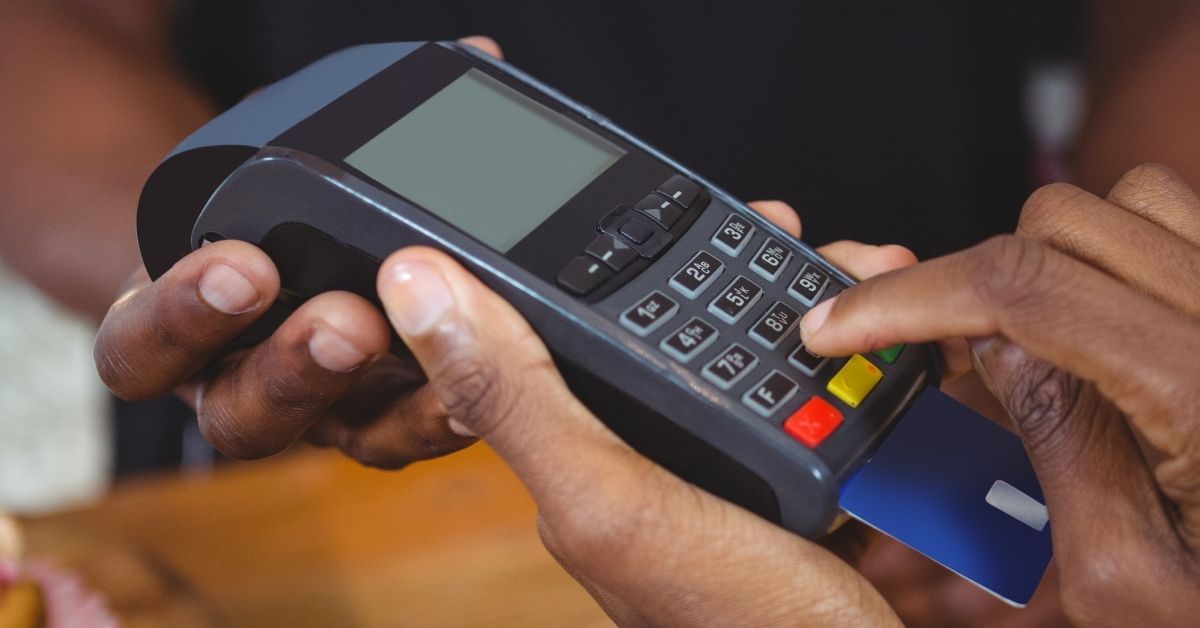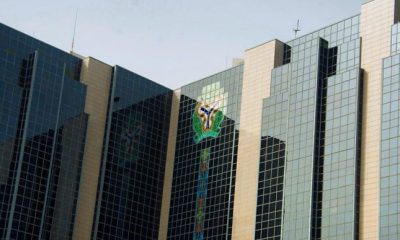Business
NNPC resolves three-decade conflict, renews licences of five OMLs

The Nigerian National Petroleum Company (NNPC) Limited says it has renewed oil production sharing contracts (PSCs) with its partners — after nearly three-decade.
NNPC said it also resolved lingering disputes with its production sharing contracts (PSCs) contractors.
PSCs are contracts between E&P and the government concerning how much of the resource extracted from the country each will receive.
According to NNPC, the parties renewed their agreements in five oil mining leases (OMLs), including 128, 130,132, 133, and 138, in a signing ceremony held in Abuja on Friday.
The development is expected to unlock over $500 billion in revenue for the country.
BODEX BLOG understands that the deal would boost oil output and provide more than $30 billion in foreign direct investment.
The PSCs were first introduced in 1993 and their renewal has since been stalled by disputes.
Speaking at the event, Mele Kyari, group chief executive officer (GCEO), NNPC Limited, said the new contract would end the litigation issues surrounding the 1993 PSCs.
Kyari said, “a major issue for all of us is all forms of litigations”.
“As you do this, it damages relationships and more than anything else, it stifles investment. That is why exactly that situation was brought to the table, that except for one asset, practically did crude oil enter into any new commitment, since 2007,” he said.
“This is clearly related to the disputes around the 1993 PSC, and we knew that as the JIA process was going on the process to put the Petroleum Industry Act, it was very obvious that the resolution or the dispute of the 1993 PSC is a critical part of that bargain.
“Today, we are happy. Our country kept its promise, and I understand very clearly that it would not have been possible except you had some courage of leadership, and all of us must give this credit to President Muhammadu Buhari, who agreed that we must resolve this most amicably. In a manner that benefits the country but also in a way investors recover their cost and make the competitive benefits that they must have from their investments.
“In the end, the PIA recognises all those terms. The fiscal terms are re-engineered to make sure that these terms are met and also allowed us by law to close our disputes amicably so that we stop all litigations so that some terms and conditions will enable us to move forward with our relationship and that is why we are here today.”
He said a major impact of the new agreement was that there would be clearer relationships between the parties.
“We will have clearer agreements in a new PSC that must have recognised all issues that we have in the 1993 PSCs, and those clarities are there. All ambiguities have been reduced to a minimum. Of course, you can never take out ambiguities from the contacts,” he said.
Business
Naira depreciates again at official market, trades at ₦1,416 to dollar

The naira on Tuesday depreciated at the official market, trading at ₦1,416.57 to the dollar.
Data from the official trading platform of the FMDQ Exchange, a platform that oversees the Nigerian Autonomous Foreign Exchange Market (NAFEM), showed that the naira lost ₦62.36.
This represents a 4.60% loss when compared to the previous trading date on Monday when it exchanged at ₦1,354.21 to a dollar.
However, the total daily turnover increased to 160.77 on Tuesday, up from $84.83 million recorded on Monday.
Meanwhile, at the Investor’s and Exporter’s (I&E) window, the naira traded between 1,445 and ₦1,301 against the dollar.
Business
Bank of America executive dies after allegedly working 120 hours a week

An investment banking executive has died after allegedly working a 120-hour-a-week shift on a deal in the Financial Institution Group (FIG) sector.
According to Trading View, the bank has released an official statement on the issue relaying their reaction to the news and their plans following the development.
“Our focus is on doing whatever we can to support the family and our team, who is devastated,” the bank said.
The deceased associate worked with the FIG team whose job description is to advise bank clients on deals.
Reports from social media claimed the associate had a wife and a child and joined the bank through the Veterans program, having previously been a green beret.
Unverified social media posts claimed he worked a 120-hour-a-week shift for four weeks and didn’t sleep, managing to stay awake by drinking energy drinks.
There are also unconfirmed reports on Instagram that he had an existing health issue.
These claims, however, have not been validated and the official cause of death remains unknown. The trending claims that he died of overwork remain speculative.
Relatives of the associate have asked for his name to remain anonymous and not be shared as they continue to grieve his death.
The tragic event follows earlier complaints by junior banking colleagues that they were working 100 hours a week during the pandemic and beyond.
There have been suggestions that working hours for most junior staff have worsened yet again as banks pitch for and execute deals with smaller teams.
In 2013, a Bank of America intern Moritz Erhardt died after having epileptic feet post-working hours. Reports claimed that Erhardt had worked for three days straight without sleep.
Sources across the American banking industry have particularly complained about the FIG sector and how life can be unbelievably harsh.
“When I worked in a FIG team it was the worst experience of my career,” said one technology banker. “This is largely because working for other bankers as your clients’ sucks,” a source complained.
The death of the investment banking executive has prompted outrage amongst many in the industry who feel working hours are still excessive and banks are not caring enough for junior staff.
It would take some time before the real reason behind the death of the investment banker is uncovered while his death has added much-needed pressure to the fight for reduced work hours in the banking sector.
Business
Five levies Nigerians pay for electronic transactions

The Central Bank of Nigeria has ordered banks operating in the country to start charging a cybersecurity levy on transactions.
A circular from the apex bank on Monday disclosed that the levy implementation would start two weeks from today.
The circular was directed to all commercial, merchant, non-interest, and payment service banks, among others.
The circular revealed that it was a follow-up on an earlier letter dated June 25, 2018 (Ref: BPS/DIR/GEN/CIR/05/008) and October 5, 2018 (Ref: BSD/DIR/GEN/LAB/11/023), respectively, on compliance with the Cybercrimes (Prohibition, Prevention, Etc.) Act 2015.
However, the apex bank exempted loan disbursements and repayments, salary payments, intra-account transfers within the same bank or between different banks for the same customer, and intra-bank transfers between customers of the same bank from the levy.
Also exempted from the levy were inter-branch transfers within a bank, cheque clearing and settlements, Letters of Credits, and Banks’ recapitalisation-related funding only bulk funds movement from collection accounts, savings, and deposits including transactions involving long-term investments, among others.
Nigerians on social media are lamenting the new levy, which they complain has added to the multiple levies paid for electronic transactions. In this report, PUNCH Online highlights the five other transaction levies paid and the amount deducted on transactions between N1,000 and N1,000,000.
1. Cybersecurity levy
N5 is charged on the transaction of N1,000
N50 is charged on the transaction of N10,000
N500 is charged on the transaction of N100,000
N5,000 is charged on the transaction of N1,000,000
N50,000 is charged on the transaction of N10,000,000
2. Transfer fee
N10 is being charged on the transaction below N5,000
N25 is being charged on the transaction between 5,001 and N50,000
N50 is being charged on transactions above N50,000
3. Stamp duties
N50 is being charged on transactions between N10,000 and N10,000,000
4. Short Messaging Service (SMS)
N4 is being charged on each electronic transfer notification
NB: This is only applicable to customers on eligible electronic transactions. Those who opt for e-mailing services are not charged the same.
5. Value Added Tax
N0.75 is being charged on N10 transfer fee
N1.875 is being charged on the N25 transfer fee
N3.75 is being charged on N50 transfer fee.
-

 Crime1 week ago
Crime1 week agoUK-based Nigerian doctor, Tijion Esho loses licences over sex for free Botox injections
-

 Entertainment1 day ago
Entertainment1 day agoKanayo introduces first son to filmmaking (Video)
-

 Business1 day ago
Business1 day agoNERC reduces FX rate for calculating new tariff for Band A customers by 16.03%
-

 Business1 day ago
Business1 day agoNaira depreciates at parallel market, appreciates at official window
-

 Business1 day ago
Business1 day agoCBN directs banks to charge 0.5% cybersecurity levy on electronic transfer
-

 Crime1 day ago
Crime1 day agoNigerian vendor in UK, Musiliu Badejo jailed for selling toxic skin bleaching products
-

 Business22 hours ago
Business22 hours agoFive levies Nigerians pay for electronic transactions
-

 Entertainment21 hours ago
Entertainment21 hours agoPortable acquires luxury house in Lekki (Video)















